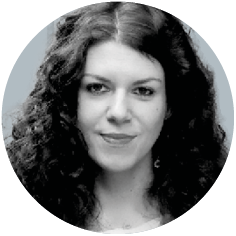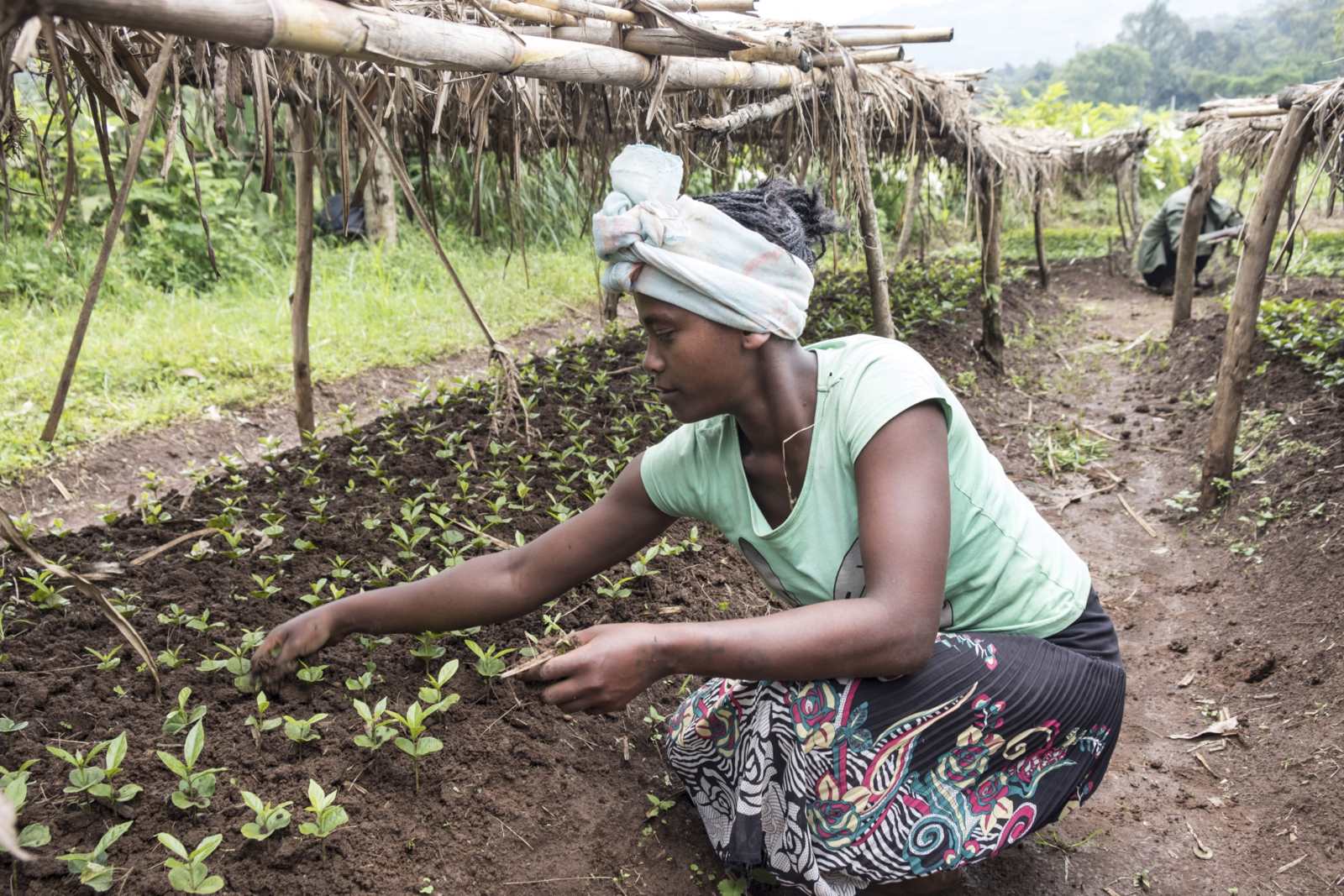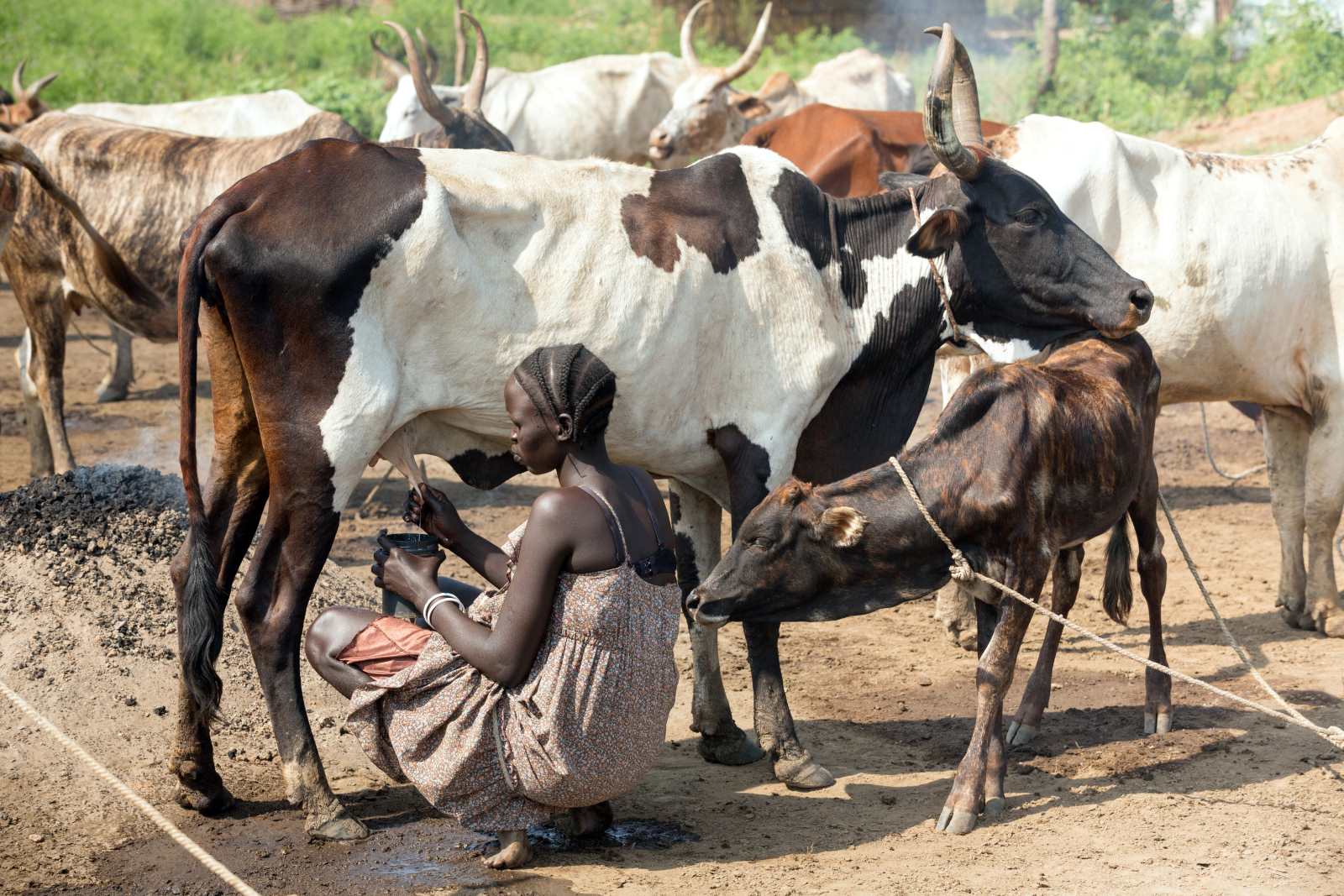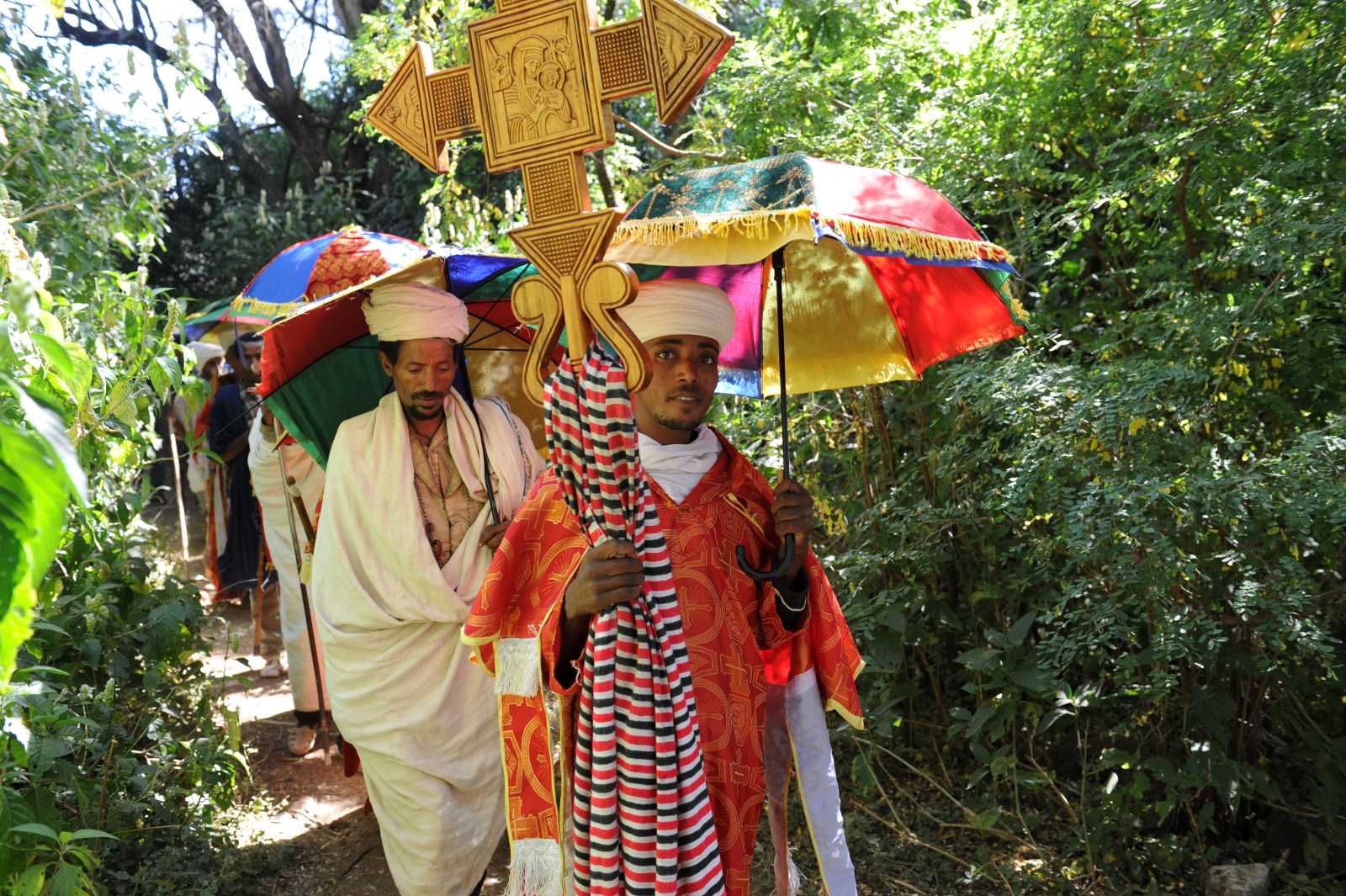Church development cooperation
Hope is a resource
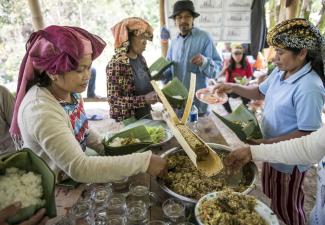
How does Bread for the World understand the role of faith, religion and religious values in development?
Faith and religion are very important in many parts of the world and are a powerful part of reality. In Europe, and especially in Germany, we are quick to no longer attach great importance to religion. However, this is not true for the so-called global south. And I would also ask the question for Germany and Europe as to whether the secularisation discourse always correctly reflects what is actually happening. For example, we deduce from dwindling church membership figures that religiosity is declining. But that is only one level and says nothing about whether people define themselves as religious or spiritual. Development policy must take into account the fact that religion and spirituality are part of being human.
When we talk about values, partnership is important to us as a church development organisation. We work through partner organisations and do not implement projects ourselves. Our own Christian faith places us unequivocally on the side of the poor, those who are on the margins of society. The church can only be the church if it inscribes this partisanship into its nature and organisation. This is reflected in the church’s development cooperation, and much follows from this – such as the collection for Bread for the World in Protestant church services at Christmas. This is not an add-on, but rather a core concern of Christianity, as it is a partisanship for the poor.
How can religion be used in development cooperation?
In many African countries, for example, large parts of the health and education systems are run by churches. Anyone who wants to strengthen these systems will find important partners in these churches. Especially in rural regions, civil society structures – and the church is part of civil society – are essential for gaining access to people.
At the same time, we must always be aware that religion can be both part of the solution and part of the problem in development policy. Religion can be filled and lived in different ways and must therefore be regarded as ambivalent – which is why the respective contexts must be analysed carefully and assessed differently.
Can you give an example?
During the Covid-19 Church development cooperation is not necessarily about praying: Farmers at a coffee field school in Indonesia sharing a meal. pandemic, we saw that vaccination suddenly became a kind of question of faith worldwide, and scientific findings took a back seat. Many people in the global south were more likely to get vaccinated if a trusted person from their religious community had recommended it. Religious communities in particular can create trust – and this is especially important in crisis situations. However, I am not closing my eyes to the above-mentioned ambivalence.
At the same time, the strength of religious communities lies in the fact that they can speak of the future and hope. A central message of Christianity is the hope that circumstances can change because they have already been turned upside down, and that God wants people to live in dignity and justice.
What role should religious organisations play in promoting social cohesion and peace, for example?
Our work, as we and our partners understand it, is guided by the question of what creates future. And for me as a Protestant, peace, justice and the preservation of creation belong closely together as a triad when it comes to the future. Peace is more than just the absence of war; it is also about fair participation.
We can contribute to this with our partners, for example by creating spaces in which issues can be discussed and negotiated. In addition, for lasting peace we also need a way of dealing with trauma, forgiveness and reconciliation. Churches can provide important psychosocial support here, as they are a point of contact in many crisis regions for counselling and support in dealing with issues such as death, illness and violence. When trust is shared and shaped there, people are comforted, hope grows even in the face of mass death – and a community is formed in which life can be dared anew.
Are there situations in which faith comes into conflict with development-policy goals? How do you handle such situations at Bread for the World?
We have a code of conduct that applies to church and non-church partners and regulates what to do in cases of discrimination or hostility. Moreover, I believe one of the tasks of our organisation is to create spaces in which difficult topics can and must be discussed.
It’s important to point out that we are not promoting religion, but rather development work for greater justice. We support the social and charitable work of churches – not the churches themselves. Our partner churches are independent, autonomous churches that organise their congregational life and work themselves. When their work relates to development, we step in and become a partner. In this role, we want to strengthen them. That is our important – but limited – mandate.
What organisations representing different faiths does Bread for the World work with and what does this cooperation look like?
We always look at what makes sense. Interfaith work is challenging. Such projects can of course be incredibly powerful, like when Christian and Muslim leaders in Sierra Leone agree that genital mutilation is wrong. There are other areas, however, in which it is almost impossible to find common ground for interfaith engagement. We respect these boundaries.
Can you name specific projects or examples that showcase interfaith cooperation?
We support a Buddhist-Christian cooperation between young people advocating for peace in Myanmar and a programme that brings together Christian, Muslim and Hindu groups in Indonesia. Here, too, the focus is on dialogue and peace, as well as on topics like sustainability.
In each context, we ask who we can work with locally and where there are structures for development cooperation, which is our actual concern. Our local partners usually have a very clear idea of which other social forces we can team up with in a country to pursue a certain goal – and when this is not possible. We let our partners’ perspectives guide our actions.
What specific challenges do you face when working with organisations from other religions?
We work with other religious communities when we identify common concerns and goals. We respect different worldviews in the same way that we would like our Christian identity to be respected. The best way to approach diversity is to engage in open dialogue about intersections in our cooperation and about differences and limits.
When conflicts arise, we carefully analyse whether the situation is really a religious conflict, or if religion is being used as a vehicle and ultimately being instrumentalised to articulate something that is really entirely on a different level. Is it a struggle for the distribution of scarce resources or is it about the recognition of different ethnic identities? The conflict has to be handled differently depending on the answer.
One thing is clear: people who know their own religion well and are able to express themselves in it are much more able to defend themselves against attempts to instrumentalise their faith for power-political conflicts. A good immersion in one’s own faith protects against such misuse of religion. In that way, a good religious education can promote peace very successfully. But if we remain silent on the topic of religion or think that we can disregard it, we let forces that would reshape and dominate religion in a fundamentalist way have free rein.
What role does environmental and climate protection play in your work?
I already mentioned the triad that serves as our basic principle: peace, justice and the preservation of creation. And I think it’s important to talk about creation and not the preservation of nature. With regard to achieving climate goals, we should be clear that we are also creatures. And, actually, fellow creatures: we do not rule over nature, we are not separate from it, but instead a part of it. Creation is both a gift and a task that has been given to us. This insight is viable outside of religion or in interfaith contexts whenever we talk about the role of people in shaping a sustainable lifestyle within planetary limits.
This gift gives rise to the task of protecting the earth for future generations as well. For us as a church development organisation, the topic also has to do with justice and the aforementioned solidarity with the poor: we have to work for justice between those who caused and are still causing climate change and those who are suffering the most as a result. Community comes into play here too, or in other words the realisation that there is a “we” that is greater than “I”.
What overlaps and challenges do you see between feminist development policy and a faith-based organisation?
I am a feminist theologian, so I naturally feel closely aligned with feminist development policy. Feminist theology played a big role in the fight against AIDS, for example. At the same time, there are also political, cultural and religious challenges. With regard to gender equality, religion can once again be either part of the problem or part of the solution.
In the two largest religions, Islam and Christianity, there are still not many ordained women. For that reason, it is important that we support feminist theologians and queer networks in our work. Feminist theology is liberation theology.
Please explain briefly what liberation theology is.
This theological approach originates in Latin America. Its central question is what resources we have in theology and in our faith to change conditions in order to promote justice. In terms of feminist theology, this would mean looking at which biblical passages, images of God and considerations enable us to take up the fight for equal rights. Reading the Bible plays a major role in Protestantism in general. The Hebrew word for “mercy” is “racham”. It has the same root as the word “rechem”, which means “womb”. What does this finding imply for our image of God and humanity, for our language and the shaping of gender roles?
What role do you think religion will have in development policy in the future?
I have to go back to my opening statement: religion is a dimension that cannot be ignored because otherwise we would be giving up opportunities and resources to reach people.
We are currently experiencing that development policy is being very much questioned, whether faith-based or not. This is a central part of the authoritarian-nationalist discourse. I wish that politicians would take a careful look at what we would be giving up here.
Church development agencies continue to receive a lot of donations. We should also not forget that here and in the global south there are a lot of people behind these agencies who are highly committed volunteers. Volunteer work is an unbelievably strong resource for church work everywhere.
This commitment contradicts those who claim that religion is dying out. I don’t have to be religious myself to recognise why religious development policy plays a special role. Instead of opening up these side issues, we should all work together as democratic forces to resist attacks on our democracy.
I already mentioned the resource of hope. In our country too, the extreme right is using hopelessness for political gain. Religion, faith and spirituality allow people to hope again and again for a change in circumstances and to create a more just future. That is the good news that we live by – especially in faith-based development.
Dagmar Pruin is the president of Bread for the World.
presse@brot-fuer-die-welt.de

